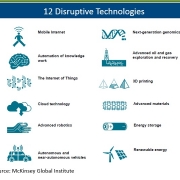As a visitor to the USA, I have often been puzzled at how US businesses both large and small are unable to see the folly of paying wages that are insufficient for people to support themselves and their families.
Some Americans have to work two or three jobs just to get by, or supplement their inadequate earnings with food stamps or donations from charitable institutions. Some 73 per cent of Americans enrolled in major public benefit programs are from working families according to research. An estimated half (52%) of front line staff of fast-food establishments are on support.
Every time a wage rise is proposed, there is the usual gnashing of teeth, and wails of complaint that the “sky will fall in”. It’s a case of “every man or woman for themselves.”
Some argue that if employers were required to pay a higher minimum wage they would not be able to compete successfully with others. But this is false logic, because if every other employer has to pay the same minimum wages, then we would have a “level playing field.”
Some on the employer side, argue that minimum wages reduce employment. However, numerous studies suggest otherwise, although there is some evidence that minimum wages may have a small impact on employment of young people entering the workforce
But to an Australian, who grew up in a culture where every year there is a legal determination of what should constitute a Basic Wage, it seems mean-spirited and unfair.
From a systems perspective, one of the frameworks we at Maverick & Boutique use to examine the effectiveness of strategy, the clear purpose of the Australian system is to ensure “a living wage” for all, so that the whole system benefits. The clear purpose of the US system is to minimize the expenses of the employer rather than adequately compensate the employee, kind of half-way towards expecting people to work for free.
Not so the Australian system, where the principles of “reasonableness and fairness” are enshrined in the annual minimum wage setting ritual, where employers, employees and the Federal Government argue their case for an increase or not.
It’s been happening ever since the 1907 judgement against agricultural machinery manufacturer, H.V. Mckay.
The judgement wisely says this:
“The remuneration could safely have been left to the usual, but unequal contest, “the higgling of the market”, with the pressure for bread on one side, and the pressure for profits on the other.”
“The standard of “fair and reasonable” must be something else; and I cannot think of any other standard appropriate than the normal needs of the average employee regarded as a human being living in a civilized community.”
“I have invited counsel and all concerned to suggest any other standard and they have been unable to do so.”
“If A lets B have the use of one of his horses, on the grounds that he gives them fair and reasonable treatment, I have no doubt it is Bs duty to give them food and water and such shelter and rest as they need.”
Australia did not become a third world country by adopting the minimum wage. Instead, our country ranks as one of the most successful in the world, economically and socially. Here are some of Australia’s rankings (Wikipedia, 2015):
* CIA World Factbook, life expectancy, 2008: No. 6 in the world
* Economist Intelligence Unit, Prosperity Index, 2008: No. 1
* The Heritage Foundation/Wall Street Journal, Index of Economic Freedom, 2008: No. 4
* World Bank, Ease of Doing Business Index, 2009: No. 9
* United Nations, Education Index, 2008: No. 1
* World Economic Forum, Soundness of Banks, 2009: No. 2
The Australian minimum wage of $16.87 per hour far exceeds the US minimum wage of $7.25 per hour, even when the exchange rate of $US1.00 = $A0.77 is taken into account. It is the epitome of fairness and reasonableness, at least for the moment. And the sky has not fallen in.
Here’s a workshop to think about these issues:
Workshop
1. How many hours a week should you work: Thinking about your own circumstances, how many hours a week should you be expected to work to earn enough to live comfortably on your own, with a partner, or with a family?
2. What expenses should your pay cover: Thinking about your own circumstances, what should a normal week’s worth of work pay for? Think about all the kinds of expenses that you must consider in this day and age.
3. Under what circumstances, if any, is it OK for an employer to pay you less for a full week’s worth of work, than what it costs to live comfortably?
4. Over the past 20 years the minimum wage has declined in value: How did this happen? Who let it happen? What
5. Social costs of the current system: Imagine for a moment that are a sole earner, with several children, maybe toddlers, maybe teens. You earn the minimum wage, which requires you to have two jobs to make enough money to keep your family in food and a roof over their heads. What are the consequences of this for you and your family? Think about travel time, working hours, time you leave for work, time you arrive home, what the children do during the day, during the evening, your social life, your expenses, what you cant afford….
6. Purpose of the system: In an ideal world, what might be a more powerful approach to setting the minimum wages that people are paid and making sure they keep up with rising costs? Should the US continue to leave it up to the market? Or a gridlocked congress? Or should there be another system independent of politics/the market to weigh what’s best for everyone? Suggest some new and better alternatives.








Leave a Reply
Want to join the discussion?Feel free to contribute!